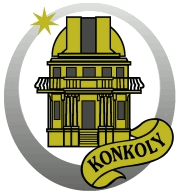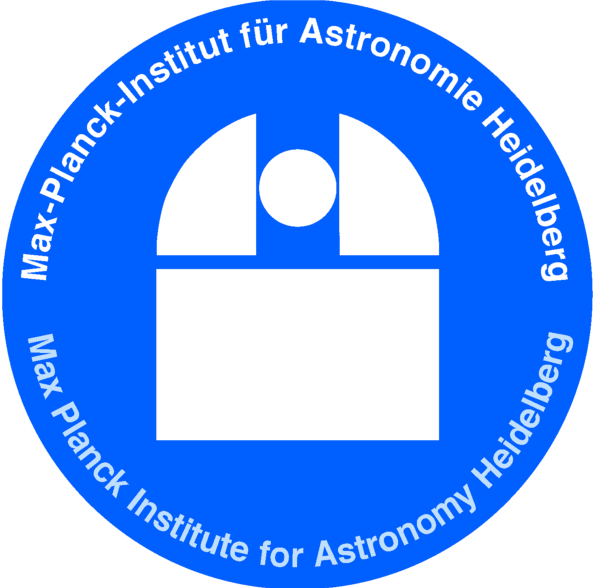Programme
| Monday, 23rd September | ||
| 9:00 – 9:05 | Welcome and Introduction | |
| The inner planetary system | ||
| 9:05 – 9:20 | Discovery of five new extreme debris disks in the AllWISE catalogue | Attila Moór |
| 9:20 – 9:35 | Variable warm dust around the Herbig Ae star HD 169142: is it of secondary origin? | Lei Chen |
| 9:35 – 9:50 | Updates on the precision interferometric studies of exozodiacal dust | Steve Ertel |
| 9:50 – 10:05 | An analytical model for size distributions of particles in a debris disk | Jess Rigley |
| 10:05 – 10:35 | DISCUSSION: Warm dust variability | Kate Su |
| 10:35 – 11:15 | Coffee break | |
| 11:15 – 11.30 | Susceptibility of planetary atmospheres to mass loss and growth in planetesimal bombardment |
Mark Wyatt |
| 11:30 – 11.45 | Constraints on the structure of hot exozodiacal dust belts and their observability in MIR | Florian Kirchschlager |
| 11:45 – 12:15 | DISCUSSION: Habitability | Steve Ertel |
| 12:15 – 13:30 | Lunch break | |
| Exocomets | ||
| 13:30 – 13:45 | Detection of Exocomets:Gaseous environment of Main-Sequence Stars | Isabel Rebollido |
| 13:45 – 14:30 | DISCUSSION: Exocomets and warm dust origins | Grant Kennedy |
| Gas | ||
| 14:30 – 14:45 | The molecular gas content of young debris disks | Péter Ábrahám |
| 14:45 – 15:00 | First sub-arcsecond submillimeter-wave [CI] image of 49 Ceti with ALMA | Aya Higuchi |
| 15:00 – 15:15 | Constraining the gas lifetime through a population synthesis study of gas around A stars | Sebastián Marino |
| 15:15 – 15:30 | Gaseous debris disks in young associations | Mark Booth |
| 15:30 – 16:15 | Tea break | |
| 16:15 – 17:30 | DISCUSSION: Gas disc evolution and composition | Meredith Hughes |
| Tuesday, 24th September | ||
| The outer planetary system | ||
| 9:00 – 9:15 | Modelling GPI images of HD 106906 | Katie Crotts |
| 9:15 – 9:30 | What lies beyond Exo-Jupiters? A High Resolution study of the q1 Eri Debris Disk | Joshua Lovell |
| 9:30 – 9:45 | M Dwarf Debris Disks and the Fomalhaut C Case Study | Patrick Cronin-Coltsmann |
| 9:45 – 10:00 | Are M-star debris disks rare? | Patricia Luppe |
| 10:00 – 10:30 | DISCUSSION: AU Mic | Anthony Boccaletti |
| 10:30 – 11:15 | Coffee break | |
| 11:15 – 12:15 | DISCUSSION: Vertical structures | Luca Matrà |
| 12:15 – 13:30 | Lunch break | |
| A broader look | ||
| 13:30 – 13:45 | Debris discs in binary systems | Ben Yelverton |
| 13:45 – 14:00 | Millimeter Emission of Stars and How It Impacts Debris Disk Studies | Jacob White |
| 14:00 – 14:15 | The optical properties of HR4796, HD181327 and HD114082 | Julien Milli |
| 14:15 – 14:30 | Deriving grain size distributions from observed (sub-)mm spectra | Torsten Löhne |
| 14:30 – 15:00 | DISCUSSION: The disc mass problem | Alexander Krivov |
| 15:00 – 15:30 | DISCUSSION: The connection to protoplanetary discs | Mark Wyatt |
| 15:30 – 16:15 | Tea break | |
| 16:15 – 16:30 | DFG Research Unit FOR2285 - a coordinated project to study debris disks | Alexander Krivov |
| 16:30 – 17:30 | DISCUSSION: The connection to the Solar system | Brenda Matthews |
| Wednesday, 25th September | ||
| Future observations | ||
| 9:00 – 9:15 | An introduction to the 25h MIRI and 80h NIRCam GTO debris disk programs | Andras Gaspar |
| 9:15 – 9:30 | Water ice, collisions, and porous dust in debris disks | Sebastian Wolf |
| 9:30 – 9:45 | Tracing planetesimal belts in thermal emission and scattered light | Nicole Pawellek |
| 9:45 – 10:30 | DISCUSSION: The James Webb Space Telescope | Choquet, Gaspar, Matrà |
| 10:30 – 11:15 | Coffee break | |
| 11:15 – 12:15 | DISCUSSION: The James Webb Space Telescope (continued) | Choquet, Gaspar, Matrà |
| 12:15 – 13:30 | Lunch break | |
| 13:30 – 14:00 | DISCUSSION: The benefit of single dish observations in the subm-m/mm domain | Jean-François Lestrade |
| 14:00 – 14:30 | DISCUSSION: SOFIA | Christine Chen |
| 14:30 – 15:00 | DISCUSSION: Membership on SWGs for the future & Other practical/strategic things | Brenda Matthews |


